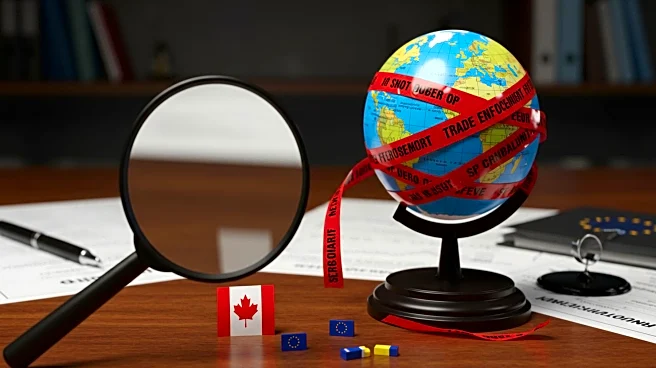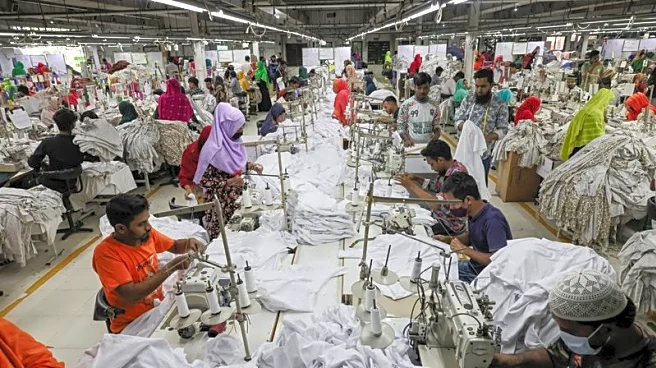What's Happening?
The U.S. Department of Justice (DOJ) is intensifying its enforcement against alleged tariff evaders, focusing primarily on companies from Canada and the European Union. This move is part of the administration's broader trade policy, which has been framed as a response to perceived foreign misconduct. President Trump has accused U.S. allies, including Canada and the EU, of economic treachery, prompting the DOJ to elevate trade and customs fraud to a high priority. The Fraud Section of the DOJ has been tasked with leading these efforts, redirecting resources from other areas such as cryptocurrency crimes and foreign bribery schemes. U.S. Customs and Border Protection has received significant funding to support these investigations, and the DOJ's whistleblower rewards program now includes tipsters reporting criminal trade offenses.
Why It's Important?
This enforcement initiative could have significant implications for international trade relations and economic dynamics. Canadian and EU companies, which are major exporters to the U.S., may face increased scrutiny and legal challenges, potentially affecting their business operations and profitability. The crackdown aligns with President Trump's rhetoric on protecting American jobs and investments, suggesting a shift in U.S. trade policy towards more aggressive enforcement. This could lead to heightened tensions between the U.S. and its trading partners, impacting diplomatic relations and potentially leading to retaliatory measures. The focus on tariff evasion underscores the administration's commitment to addressing trade imbalances and perceived unfair practices by foreign entities.
What's Next?
As the DOJ ramps up its efforts, Canadian and EU companies should prepare for potential investigations and prosecutions. Firms may need to reassess their compliance strategies and consider voluntary disclosure if they uncover trade-related misconduct. The DOJ's Fraud Section is well-equipped to handle cross-border economic crimes, and its corporate enforcement policy offers incentives for cooperation. However, companies must carefully evaluate the risks and benefits of self-disclosure, as premature or unnecessary actions could expose them to greater liabilities. The ongoing enforcement could lead to a wave of legal actions, reshaping the landscape of international trade and influencing future policy decisions.
Beyond the Headlines
The DOJ's focus on tariff evasion highlights broader ethical and legal considerations in global trade practices. The initiative may prompt companies to strengthen their compliance frameworks and adopt more transparent business operations. It also raises questions about the balance between national interests and international cooperation, as the U.S. seeks to protect its economic interests while maintaining diplomatic relations. The long-term impact of this enforcement could lead to shifts in trade policies and practices, influencing how countries negotiate and enforce trade agreements.












